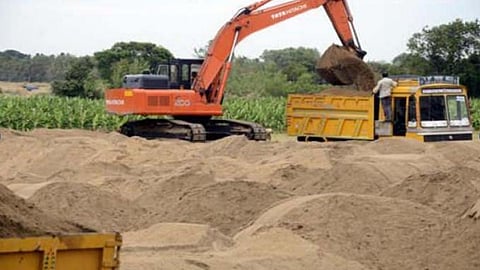
- Topics
- Feature
- Opportunities & Events
- Data
- Hindi Portal
- Topics
- Feature
- Opportunities & Events
- Data
- Hindi Portal

The National Green Tribunal bans mining or removal of sand from river banks without environment clearance from the state or central ministry and license from a competent authority. The order comes in the wake of suspension of an IAS officer from Uttar Pradesh who took strict action against illegal sand mining. Removal of minerals from the river beds causes serious threat to the flow of the river and forests on the river bank, the Tribunal observed.
The central government has decided to release classified hydrological data to interested parties for a price, provided they convince a panel about its use. The data will be free if needed for non-commercial purposes but will come at a cost of Rs 75,000 per annum for a particular site for both domestic and foreign commercial users.
The Committee sends notice to 25 clubs in the capital to set up sewage treatment plants within three months. There are 52 clubs in Delhi that use up about 10 million litres of water daily. Of this, about 8 million litres, which is enough for 96,000 people or 19,200 households, is wasted says the Committee chief. It also ordered the closure of some restaurants on these clubs' premises.
Surat could have faced a repeat of the 2006 floods if the authorities at the Ukai dam upstream of the city did not discharge water periodically. The Central Water Commission had forcast an inflow of 1,260 million cubic metre (MCM) but the Ukai dam received water at the rate of 1,890 MCM, forcing them to increase the rate of discharge to 2.5 lakh cubic feet per second (cusecs). If they did not do so, a sudden release of above 3 lakh cusecs could flood low-lying parts of the city.
This is a roundup of important news from August 5-11, 2013.